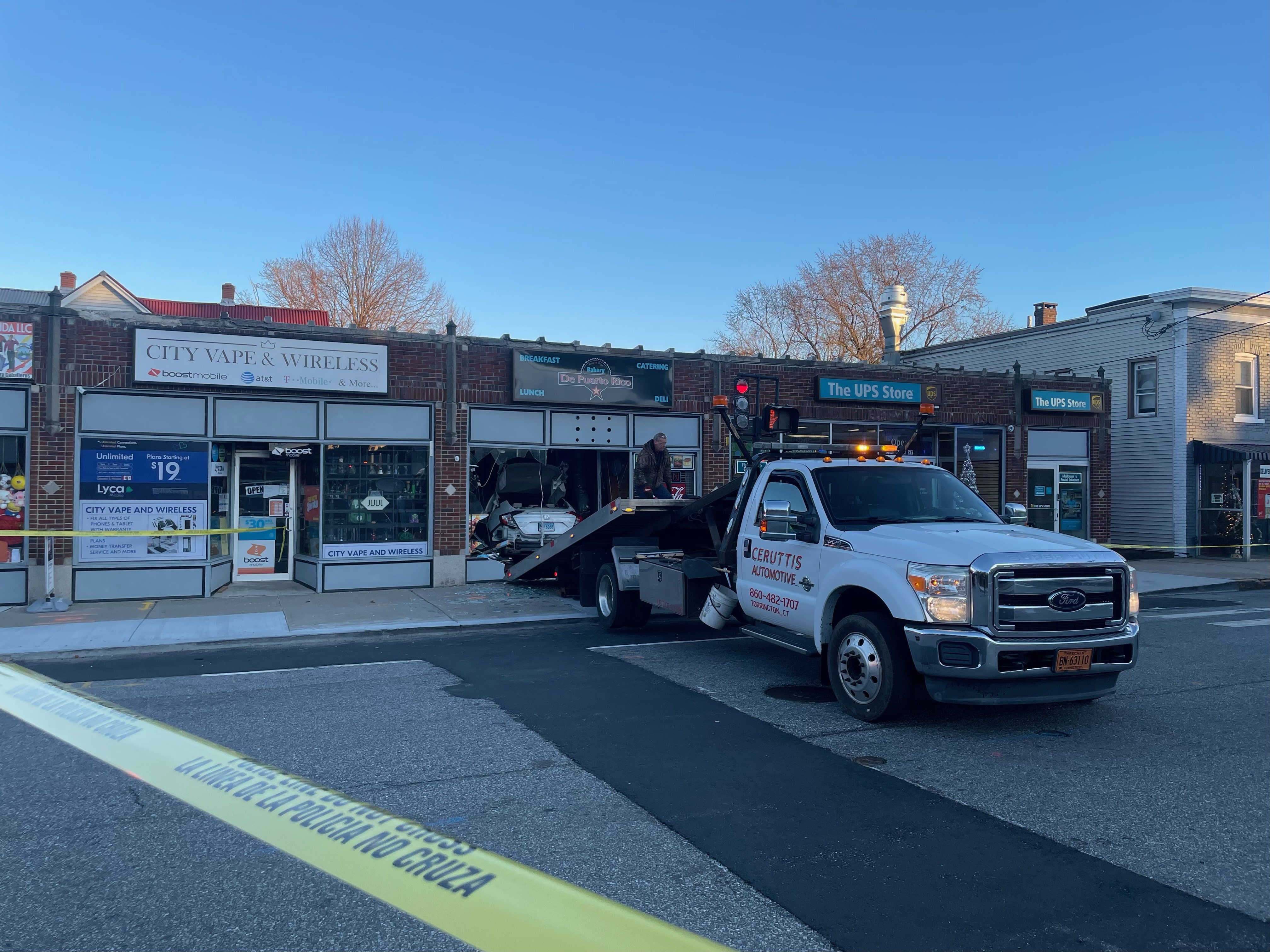Yale University is paving the way for New Haven students to attend a historically Black college or university (HBCU) by offering $20,000 per student in the newly founded Pennington Fellowship.
“Yale is the only university in the country funding a promise program for students to go to a lot of other universities,” said Patricia Melton, president of New Haven Promise.
The program is focused on college readiness and scholarships for New Haven Public School students to use at colleges and universities in Connecticut. It lifts the burden of higher education costs so families can focus on preparing their students for college.
It was co-founded in 2010 by Yale, who’s provided $29 million in scholarship funds over the last 12 years.
Get top local stories in Connecticut delivered to you every morning. >Sign up for NBC Connecticut's News Headlines newsletter.
“Once students go to college, we’re paying their tuition as well as working with them around paid internships and career pathways,” Melton said.
According to the university, Rev. James W. C. Pennington was the first Black student to attend Yale. He escaped slavery and secured his freedom after 24 years. He could not formally enroll at Yale, but audited classes at Yale Divinity School and became a scholar, minister, speaker, and worked against slavery.
Next fall, New Haven Promise will hand out 12 Pennington Fellowships for students to attend Hampton, Morgan State, Spellman and Morehouse. It’s estimated that 500 New Haven Promise students have wanted to attend an HBCU over the years, but few attend largely due to cost.
Local
“This scholarship is going to break down barriers for our students,” said Keisha Redd-Hannans, the assistant superintendent of curriculum instruction and assessment at New Haven Public Schools.
She graduated from Hillhouse High School and is an HBCU graduate of Howard University.
“The first time I stepped foot on campus, I felt like I was at home,” said Redd-Hannans. “It was just a brand new world. Just to be around a culturally diverse environment of folks that were focused and trying to move our community forward, was lifechanging for me.”
She says people in the school system were excited when Yale announced the fellowships.
“Many students believe they cannot afford college and so by offering these funds to our students, it’s going to open a whole new avenue and show students what they can possibly be in life,” said Redd-Hannans. “For Yale to provide these opportunities for our students, shout out to Yale. We’re happy for them and we want to partner even further.”
In the fall of 2020, the Yale and Slavery Working group began to examine the school’s past and its connection to slavery. The university says the group will publish its initial findings next year.
In a statement, Yale University president Peter Salovey said:
“Our responsibility to discover light and truth compels us to reckon with our past. Although the working group’s research activities are still underway, its findings thus far point us to some actions we can take now.”
He goes on to say, “This scholarship addresses, in part, historical disparities in educational opportunities for Black citizens.”
According to Salovey, the working group discovered what would have been the country’s first Black college in New Haven in 1831. It was blocked by people from the Yale and New Haven communities. The details are in “What Could Have Been,” a documentary by Tubyez Cropper and Michael Morand, produced by the Beinecke Library at Yale.
“The strength of institutions can be measured, in part, by their willingness to confront their past openly—and act meaningfully on what they find,” Salovey said.
Hampton University President LTG. (ret) Darrell K. Williams says he has been in discussions with Yale in the last few months about potential partnerships, including faculty exchanges and potentially exchanges with students. He says he’s excited for the Pennington Fellowship.
“It was a direct outreach from President Salovey at Yale University. And that made this opportunity even more special to get a direct outreach from the president of such a prestigious university,” Williams said.
“A $20,000 scholarship from Yale and the Pennington fellowship, investing in students from New Haven to come here to Hampton University, to our 'home by the sea,' I think will strengthen that relationship,” Williams said. “And so, we're very excited about this initiative, as well as the other ones that we'll pursue with Yale University.”
Historically Black Colleges and Universities began in the 1800s as a place for higher education when Blacks weren’t allowed to attend established white institutions. Nearly 150 years later, Williams says HBCUs fill a very special niche, adding diversity to the overall higher education landscape.
“And so I think we fill a very, very vital role, both in our communities, certainly within African-American community, underserved communities, but to America writ large,” Williams said.
Hampton University sophomore Sydney Johnson is a New Haven Promise student.
“I went into college with a solid resume with some work experience under my belt,” Johnson said, noting her paid internships and opportunities she had through New Haven Promise.
Johnson when to Engineering Science University Magnet School and loved engineering. She attended Yale’s Pathways to Science and took Yale classes in high school. Now as an architecture major, she chose Hampton as an entry into a competitive, predominantly white male industry, and started school during the pandemic.
“I didn’t really get that big HBCU experience until this year and now that I have it, I want everyone to experience it. It’s truly not like anything else," Johnson said.
There are plans to expand the fellowship to more schools, and Melton says they are in the middle of bringing two more on board.
“I think it’s really going to get people thinking a little bit more deeply about the value and cultural support, and what is the secret sauce that historical black colleges have,” Melton said.
The applications for the first Pennington Fellowship are due Dec. 22.



